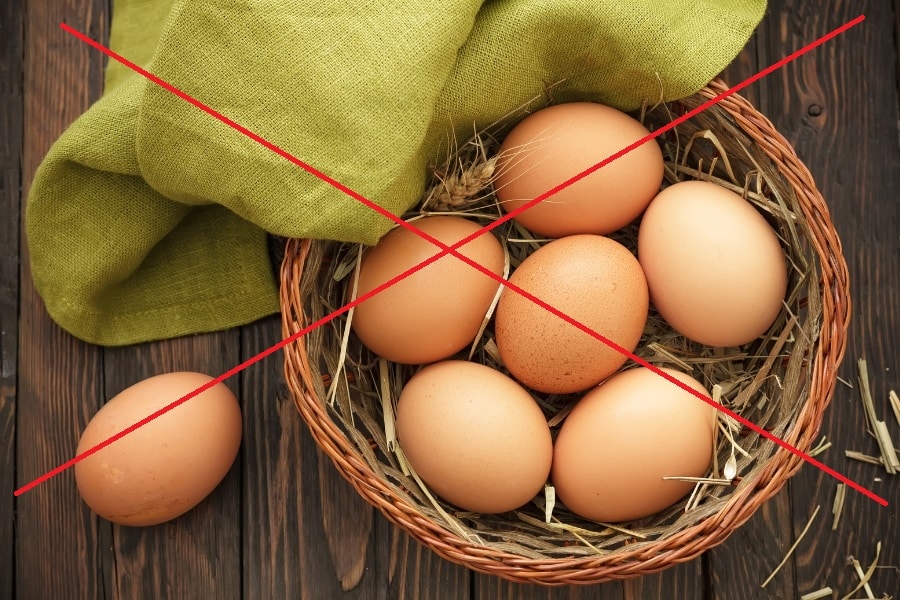Adopting a vegan lifestyle involves more than a commitment to stop consuming animal products; it requires a thoughtful approach to daily nutrition and meal planning. With the increasing popularity of veganism for its health, environmental, and ethical benefits, understanding how to craft the perfect vegan grocery list becomes essential. This article will guide readers through the essential categories of vegan groceries, offering insights into balancing nutrition with delicious choices. From pantry staples to fresh produce and dairy alternatives to healthy snacks, each section will delve into the key elements of a vegan diet, ensuring readers are well-equipped to make informed choices on their vegan journey.
Contents
- 1 Understanding Vegan Nutrition Basics
- 2 Essential Vegan Pantry Staples
- 3 Fresh Produce: Fruits and Vegetables
- 4 Protein-Rich Foods for Vegans
- 5 Dairy Alternatives and Plant Milks
- 6 Healthy Fats and Oils
- 7 Snacks and Convenience Foods
- 8 Herbs, Spices, and Flavor Enhancers
- 9 Planning and Budgeting for Your Vegan Grocery Shopping
- 10 The Bottom Line
- 11 Related
Understanding Vegan Nutrition Basics

When transitioning to a vegan diet, grasping the basics of vegan nutrition is crucial. Essential nutrients, typically derived from animal products, must now be sourced from plant-based foods. This includes proteins, which can be found in legumes and nuts; carbohydrates, abundant in fruits and grains; and fats, which are essential for brain health and can be sourced from avocados and seeds. Equally important are vitamins and minerals like B12, iron, and calcium, vital for maintaining energy levels and overall health.
Another key aspect of vegan nutrition is ensuring a varied and balanced diet. This variety helps cover all nutritional bases and makes meals more enjoyable and sustainable in the long term. Vegans must explore different food groups, experiment with new recipes, and consume a rainbow of fruits and vegetables to get a wide range of nutrients.
Essential Vegan Pantry Staples

The foundation of any vegan kitchen lies in its pantry staples. Whole grains like quinoa, brown rice, and oats should be stocked for their versatility and nutritional value, offering essential fiber and proteins. Similarly, legumes, including beans, lentils, and chickpeas, are indispensable due to their high protein and fiber content, serving as excellent meat substitutes.
Nuts and seeds like almonds, chia, and flaxseeds are also pivotal in a vegan pantry. They are great sources of healthy fats and proteins and add texture and flavor to dishes. These staples can be used in various recipes, from breakfast oatmeals to hearty dinner bowls, ensuring a nutrient-rich diet that supports a vegan lifestyle.
Fresh Produce: Fruits and Vegetables

Fresh produce plays a starring role in any vegan diet, offering a plethora of vitamins, minerals, and fiber. Shopping for seasonal fruits and vegetables is cost-effective and ensures the freshest and most flavorful produce. This practice supports local agriculture and reduces the carbon footprint associated with long-distance food transportation.
The debate between organic and conventional produce is also pertinent for vegans. While organic options avoid pesticides and are generally considered more environmentally friendly, they can be more expensive. Regardless of the choice, it’s important to include various fruits and vegetables to ensure a broad intake of different nutrients. Proper storage is also key to prolonging freshness and reducing food waste.
Protein-Rich Foods for Vegans

Protein is often a focus of concern when it comes to vegan diets, but abundant plant-based sources are available. Tofu, tempeh, and seitan are popular meat alternatives, each offering unique textures and flavors and high in protein. These can be used in myriad dishes, from stir-fries to grills, making them versatile options for any meal.
Homemade protein sources, such as bean burgers or lentil patties, are economical and customizable. They allow for incorporating various herbs and spices, tailoring flavors to personal preference. Ensuring a diversity of protein sources is important in a vegan diet, as it provides a range of amino acids and nutrients, supporting overall health and well-being.
Dairy Alternatives and Plant Milks

The rise in veganism has led to an increase in dairy alternatives, particularly plant milk. Almond, soy, oat, and rice milk each offer unique nutritional profiles and flavors, catering to different dietary needs and preferences. These milks can be used in everything from morning cereals to creamy soups and sauces.
Vegan cheese and yogurt have also become more accessible, with numerous store-bought options and recipes for homemade versions. Incorporating these alternatives into daily meals allows for the enjoyment of familiar textures and flavors, making the transition to veganism smoother and more enjoyable.
Healthy Fats and Oils

Healthy fats are an essential component of any diet, including vegan. Sources such as avocados, nuts, and seeds provide necessary fatty acids and contribute to satiety and flavor in meals. These can be easily incorporated into salads, smoothies, and baked goods.
Choosing the right cooking oils, like olive or coconut oil, is also important for a vegan diet. Each oil has its health benefits and ideal cooking temperatures, making it suitable for different culinary uses. Balancing fat intake is crucial for optimal health, particularly in a diet devoid of animal fats.
Snacks and Convenience Foods

Healthy snacking is an important aspect of maintaining a balanced vegan diet. Options like fresh fruits, nuts, and homemade energy bars provide quick nutrition and are perfect for on-the-go lifestyles. These snacks are healthy and offer a variety in taste and texture, keeping the diet interesting and satisfying.
Reading labels becomes a crucial skill when selecting vegan convenience foods. Many packaged foods contain hidden non-vegan ingredients, so vigilance is key. Additionally, numerous vegan convenience foods are available that save time without compromising on health, ideal for busy days or when cooking from scratch is not feasible.
Herbs, Spices, and Flavor Enhancers

A well-stocked herb and spice cabinet is essential for any vegan kitchen. These flavor enhancers are key to creating satisfying and diverse dishes. From the warmth of cinnamon to the brightness of fresh basil, herbs, and spices can transform simple ingredients into delectable meals.
Natural sweeteners like maple syrup, agave, and dates offer vegan alternatives to refined sugars, adding sweetness to dishes without the need for animal products. Experimenting with these can elevate desserts and sweet treats, providing healthier options that are just as indulgent.
Planning and Budgeting for Your Vegan Grocery Shopping

Effective meal planning is a cornerstone of successful vegan grocery shopping. It not only ensures a well-rounded diet but also helps in managing food expenses. Planning meals allows for targeted shopping, reducing impulse purchases and food waste.
Budgeting is another crucial aspect, especially considering some vegan products can be pricey. Tips like buying in bulk, choosing seasonal produce, and comparing prices can help make veganism more affordable. Additionally, adopting eco-friendly shopping practices like reducing packaging and waste aligns with the environmental ethos of veganism.
The Bottom Line
Creating the perfect vegan grocery list is more than choosing plant-based foods. It involves understanding nutrition, making smart shopping choices, and finding joy in vegan foods’ variety and flavors. This guide provides the foundation for crafting a grocery list that is nutritious, satisfying, and kind to the planet and animals. Embracing veganism can be a delightful journey of discovery, full of delicious foods and innovative recipes that nourish the body and soul.


